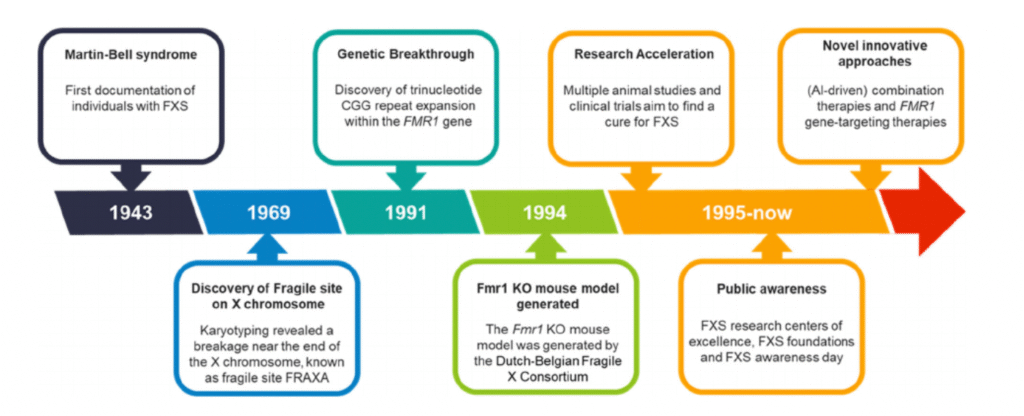- Notizie
- |
- Ricerca
80 anni di progressi nella ricerca sulla FXS
Pubblicato: 1 Set 2025
Mathijs B. van der Lei and R. Frank Kooy take us through 8 decades of transformative FXS research in this literature review.

Image courtesy of Biomedicines
Extensive research over the past 80 years has led to key advancements in the genetic, molecular, and clinical understanding of Fragile X Syndrome (FXS). A historic account of FXS research shows that the absence of FMRP disrupts critical neural pathways, affecting synaptic plasticity and contributing to cognitive, behavioral, and physical manifestation characteristics of FXS. A major breakthrough in understanding the pathophysiology of FXS was made in studies involving animal models, particularly the FMR1 KO mouse. These models have been crucial in identifying many disrupted signaling pathways, in particular, mGluR5 and GABAergic dysfunction. However, differences between animal and human neurodevelopment have made direct clinical translation difficult. Despite these difficulties, emerging therapeutic strategies, including AI-driven combination therapies, antisense oligonucleotide therapies (ASO), and gene reactivation approaches, remain crucial to understanding underlying molecular deficits of FXS.
A key takeaway from the study is the observation that, “It is important to acknowledge that not all individuals with FXS require treatment, as many lead fulfilling lives with the support of their families or within assisted living environments. Future therapeutic strategies should therefore prioritize personalized and need-based interventions that respect individual wellbeing and quality of life.”


